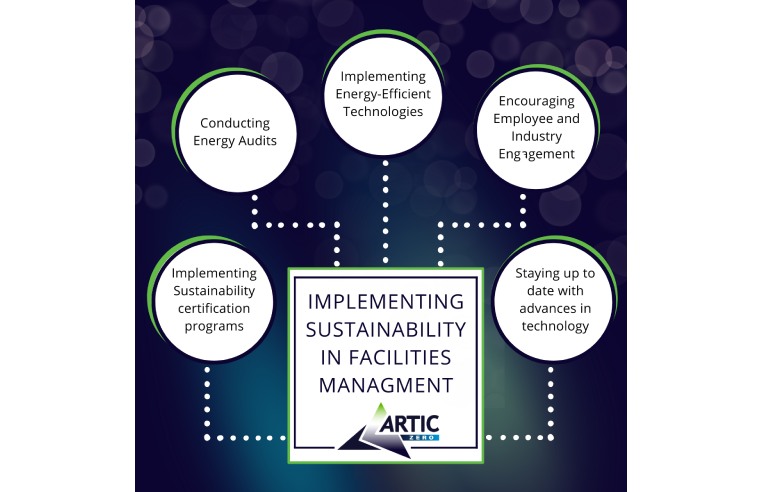Artic Building Services explains how FMs can meet their environmental responsibilities whilst maintaining cost effectiveness.
Facilities management is a critical component of modern business operations, with the responsibility of ensuring that the built environment supports the needs of an organisation. Sustainability has become a major concern in recent years, as organisations seek to balance the need for cost-effectiveness with the need for environmental considerations. Despite this growing importance, implementing sustainable practices can often involve a significant initial investment, which can be difficult to justify when budgets are tight. Additionally, facilities managers are not always equipped with the necessary knowledge, resources, or tools to effectively manage sustainability initiatives. The fast pace of technological advancements can also be a challenge.
The importance of sustainability
Sustainability in facilities management has become increasingly important in recent years due to growing concerns about climate change and the need to reduce energy consumption. This can be traced back to the late 20th century when environmental issues first began to gain widespread attention and governments started implementing regulations to address them. The increasing cost of energy and the need for businesses to reduce energy costs and improve energy efficiency have further amplified the importance of sustainability in facilities management.
Advances in technology and systems
In response to these environmental developments, innovative technologies and systems have emerged, including energy-efficient lighting, heating, and cooling systems, renewable energy sources, and smart building systems that enable real-time monitoring and control of energy use. Another key advancement in the field of facilities management has been the growth of sustainability certification programs, such as LEED (Leadership in Energy and Environmental Design) and BREEAM (Building Research Establishment Environmental Assessment Method).
Key strategies for implementing sustainability
To effectively implement sustainability in facilities management, there are several key strategies that can be employed. See image at the top of the page for examples.
Benefits of implementing sustainability
Implementing a comprehensive sustainability program in facilities management can bring numerous benefits, including:
- Reduced energy costs: By reducing energy consumption and emissions, facilities managers can lower their energy bills, saving money for the organisation.
- Improved energy efficiency: Investing in energy-efficient technologies and systems can help facilities managers to improve the energy efficiency of their buildings, reducing energy consumption and emissions, and helping to mitigate the impact of rising energy costs.
- Enhanced reputation and brand image: A commitment to sustainability can enhance an organisation's reputation and brand image, helping to attract customers and employees who are looking for environmentally responsible companies.
- Increased employee satisfaction and morale: Hosting sustainability workshops can bring employees together to work towards a common goal, improving collaboration and team building skills.
- Improved indoor environment quality: Implementing sustainable building practices can improve indoor air quality, lighting, and temperature control, enhancing the comfort and well-being of building occupants.
- Compliance with environmental regulations: Implementing a sustainability program can help facilities managers to comply with environmental regulations, reducing the risk of penalties and legal action.
In conclusion, implementing sustainability in facilities management is not only an environmentally responsible choice, but also a smart business decision that can bring numerous benefits. Artic Building Services is dedicated to helping organisations achieve their sustainability goals, from conducting energy audits to implementing energy-efficient technologies and encouraging employee engagement. We invite you to join us in our commitment to a sustainable future and take advantage of the benefits that implementing sustainability in facilities management can bring.



































